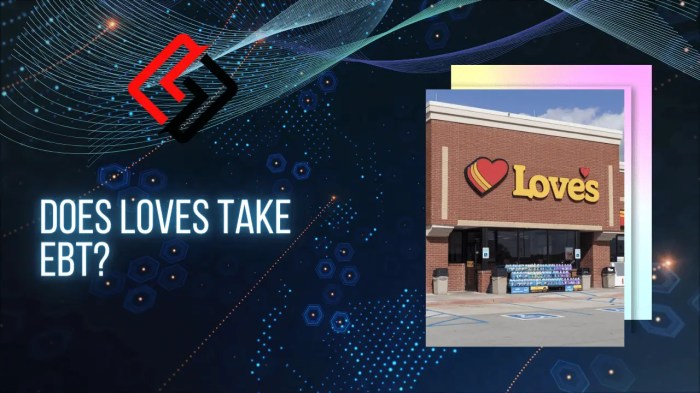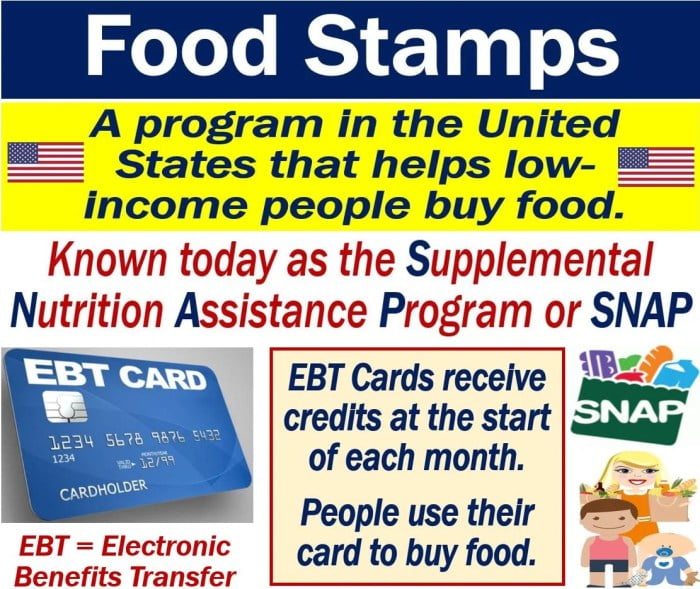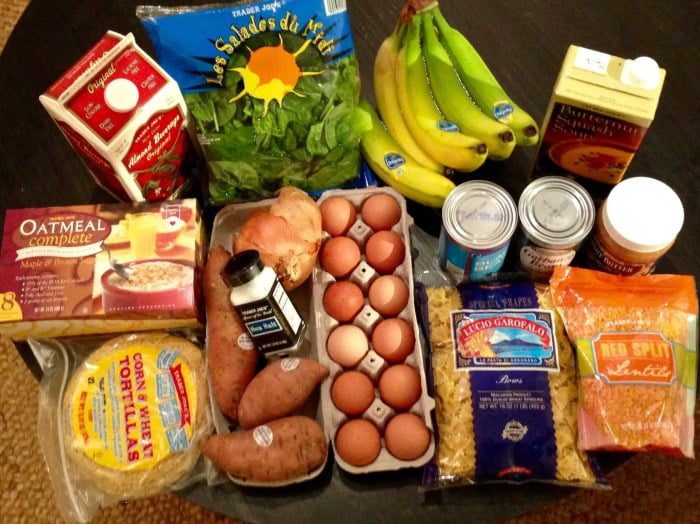In the intricate tapestry of human relationships, love holds a profound sway, shaping our lives in myriad ways. It is within this context that we delve into the intriguing question: does love take food stamps? This exploration will navigate the intersection of love, relationships, and the utilization of government assistance programs, unraveling the complex interplay between these elements.
Food stamps, a form of government assistance, provide a lifeline for millions of Americans facing food insecurity. While eligibility criteria and application processes vary, these programs aim to alleviate hunger and promote nutritional well-being. As we examine the impact of love on food stamp usage, we will consider the different types of relationships, their influence on food consumption patterns, and the potential challenges and opportunities that arise.
Food Stamps Overview

Food stamps, also known as the Supplemental Nutrition Assistance Program (SNAP), is a federal nutrition assistance program that provides low-income individuals and families with access to affordable and nutritious food.
To be eligible for food stamps, individuals and families must meet certain income and asset requirements. The application process typically involves providing proof of income, assets, and household size. Once approved, participants receive an Electronic Benefits Transfer (EBT) card, which they can use to purchase food at authorized retailers.
Benefits of Food Stamps
- Increased access to healthy and nutritious food
- Reduced food insecurity and hunger
- Improved overall health and well-being
- Economic benefits to local communities
Limitations of Food Stamps
- Limited purchasing options (e.g., cannot be used to purchase alcohol or tobacco)
- Income and asset limits
- Potential for stigma or discrimination
Love and Relationships
Love and relationships can significantly impact food stamp usage. Understanding the different types of love and relationships, as well as their potential effects on food stamp usage, is crucial.
Types of Love and Relationships
There are various types of love and relationships, each with its unique characteristics:
-
-*Romantic Love
Characterized by intimacy, passion, and commitment.
-*Platonic Love
A deep affection between friends or family members, without romantic or sexual attraction.
-*Self-Love
A healthy appreciation and care for oneself.
-*Unrequited Love
Love felt by one person towards another who does not reciprocate.
Love and Food Stamp Usage
Love can influence food stamp usage in several ways:
-
-*Increased Food Consumption
In romantic relationships, couples may cook and eat meals together more often, leading to increased food consumption.
-*Improved Nutritional Choices
A supportive partner can encourage healthy eating habits and meal planning, resulting in improved nutritional choices.
-*Financial Assistance
In some cases, a partner’s income or financial support can supplement food stamp benefits, providing additional resources for food purchases.
Challenges and Opportunities
Being in a relationship while receiving food stamps can present both challenges and opportunities:Challenges:
-
-*Stigma and Discrimination
Some individuals may experience stigma or discrimination due to receiving food stamps, which can be exacerbated in a relationship.
-*Financial Dependence
Food stamps can provide financial assistance, but relying on a partner for financial support can create a sense of dependence.
-*Relationship Dynamics
Food stamp usage can impact relationship dynamics, particularly if one partner is not comfortable with the other receiving assistance.
Opportunities:
-
-*Shared Responsibility
Relationships can provide opportunities for shared responsibility in managing food stamp benefits, promoting cooperation and mutual support.
-*Reduced Stress
A supportive partner can help reduce stress and anxiety associated with food insecurity, improving overall well-being.
-*Access to Resources
Relationships can connect individuals to additional resources, such as community support groups or food pantries, providing access to a wider range of food assistance options.
Understanding the interplay between love, relationships, and food stamp usage is essential for individuals receiving assistance.
By navigating challenges and leveraging opportunities, individuals can maintain healthy relationships while effectively utilizing food stamp benefits to meet their nutritional needs.
Impact on Food Stamp Usage

Love can significantly impact food stamp usage within a relationship. It can lead to either increased or decreased usage, depending on various factors.
When love leads to increased food stamp usage, it may be due to the following reasons:
- Increased household size: When couples live together, they may have a larger household size than when they lived separately. This can increase their eligibility for food stamps and the amount they receive.
- Changes in income: Love can lead to changes in income, such as when one partner leaves their job to care for children or a sick family member. This can reduce the household income and increase the need for food stamps.
- Emotional support: Love can provide emotional support that makes it easier for individuals to apply for and use food stamps. Partners can encourage each other to seek help and provide practical assistance with the application process.
On the other hand, love can also lead to decreased food stamp usage. This may occur when:
- Increased income: When both partners work, their combined income may increase, reducing their eligibility for food stamps or the amount they receive.
- Improved financial management: Love can lead to improved financial management practices, such as budgeting and meal planning. This can help couples reduce their food expenses and decrease their reliance on food stamps.
- Lack of communication: If partners do not communicate openly about their financial situation, one partner may be unaware of the other’s need for food stamps. This can lead to underutilization of the program.
Communication and support are crucial for managing food stamp usage within a relationship. Couples should openly discuss their financial situation and needs. They should also work together to create a budget and meal plan that meets their nutritional requirements while staying within their financial constraints.
Social and Economic Factors
Food stamp usage within relationships is influenced by various social and economic factors. These include poverty, unemployment, access to resources, and support systems.
Poverty is a major driver of food stamp usage. Individuals and families with limited income may struggle to afford basic necessities like food, housing, and healthcare. Food stamps provide a vital source of support for these individuals, helping them to meet their nutritional needs.
Unemployment
Unemployment is another factor that can lead to food stamp usage. When individuals lose their jobs, they may experience a significant loss of income. This can make it difficult to afford food and other essential expenses. Food stamps can provide a temporary source of support during periods of unemployment.
Access to Resources and Support Systems
Access to resources and support systems can also affect food stamp usage. Individuals who have access to social services, community programs, and other forms of support may be less likely to rely on food stamps. These resources can provide assistance with food, housing, and other essential needs, reducing the need for food stamp benefits.
Policy Implications
The relationship between love and food stamp usage has significant policy implications that require attention. Addressing these implications can promote healthy relationships, reduce barriers to food assistance, and improve overall well-being.
One important policy implication is the need for policies that support healthy relationships. Strong and stable relationships can provide emotional and financial support, reducing the likelihood of food insecurity. Policies that promote relationship education, counseling, and conflict resolution can help couples navigate challenges and build healthier relationships.
Collaboration between Social Service Agencies and Relationship Counselors
Collaboration between social service agencies and relationship counselors can be crucial in addressing the needs of individuals and families who face food insecurity and relationship challenges. By working together, these professionals can provide comprehensive support that addresses both the practical and emotional aspects of food insecurity.
- Social service agencies can provide food assistance, housing support, and other essential services to address immediate needs.
- Relationship counselors can offer therapy, relationship education, and conflict resolution skills to help couples improve their relationships and reduce stress.
By combining their expertise, social service agencies and relationship counselors can create a more effective and supportive system for individuals and families facing food insecurity and relationship challenges.
Last Word

Through this exploration, we have gained insights into the multifaceted relationship between love, relationships, and food stamp usage. Love can indeed influence food stamp utilization, both positively and negatively, highlighting the need for policies that support healthy relationships and reduce barriers to food assistance.
Collaboration between social service agencies and relationship counselors can empower individuals and families to navigate the complexities of food stamp usage within the context of their relationships. As we continue to unravel the intricate connections between love and food security, we pave the way for more equitable and effective food assistance programs that uplift and empower our communities.
FAQs
Can individuals in a relationship use food stamps?
Yes, individuals in a relationship can use food stamps if they meet the eligibility requirements based on their household income and assets.
How does love impact food stamp usage?
Love can influence food stamp usage in various ways, such as leading to increased food consumption due to shared meals or decreased usage due to financial support from a partner.
What are the challenges of using food stamps in a relationship?
Challenges may include managing food stamp usage within a shared budget, potential stigma associated with using food assistance, and differing food preferences between partners.
What resources are available to support couples using food stamps?
Resources include relationship counseling, financial literacy programs, and community support groups that can provide guidance and support in managing food stamp usage within a relationship.